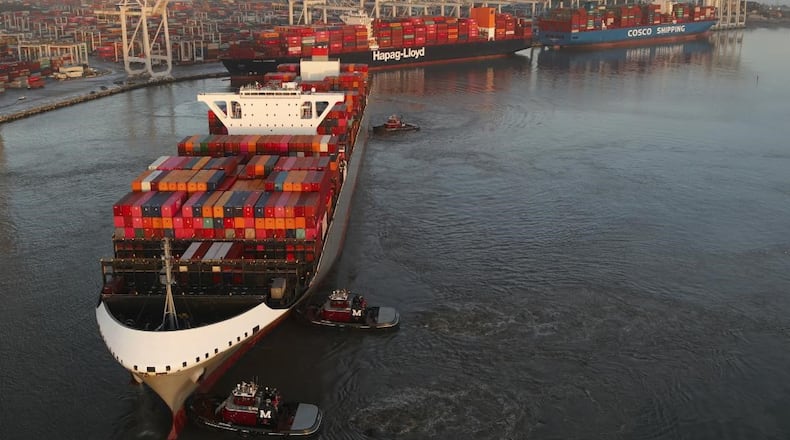The Port of Savannah had its busiest April on record, handling nearly a half-million 20-foot containers — nearly one of every nine passing through an American port, according to officials at the Georgia Ports Authority.
That trade activity — the third-busiest month the port has ever had — came despite gaps in global shipments caused by China’s continued struggle with the coronavirus, an effort that has often roiled manufacturing and transit around the world’s largest port in Shanghai.
That disruption has meant fewer ships arriving, but the possibility of labor trouble on the West Coast has meant some vessels being re-routed to Georgia, said Griff Lynch, the authority’s executive director.
A six-year union contract involving many West Coast ports expires July 1, and some shippers want to make sure they are not caught in any slowdown or interruption should negotiations falter, he said.
“We don’t know exactly how much diversion there will be from the West Coast to the East Coast, but we think the China decline is being offset a bit,” Lynch said.
The Port of Savannah, which is the second-largest container port on the East Coast, handled 6.2% more container traffic in April than in the same month a year ago.
Overall trade has increased partly because the pandemic-triggered problems with the supply chain have persuaded many retailers and manufacturers to revamp their strategy for ordering goods.
Pre-pandemic, many firms had a “just-in-time” approach, wanting items to arrive only as they were ready to use them. But snarls in the supply chain meant that for months, many companies faced unexpected delays in deliveries.
So many companies now order well in advance of the need, Lynch said. “They have gone from just-in-time shipping to just-in-case.”
The Port of Savannah has been undergoing a number of construction projects aimed at expanding its capacity to handle and store cargo. Even so, the port sometimes falls behind, Lynch said.
“We are still seeing a backlog of containers,” he said.
The average shipment currently sits at the terminal for 8.4 days, he said. “We would really want that in the five-day range.”
Construction has also forced a temporary closure of some of the large berths, which forces some ships to wait to be unloaded. On Wednesday, eight ships were waiting at anchor to dock.
At the worst of the trade crunch last year, more than 30 ships were queued up to unload in Savannah, but for a time earlier this year, the port had cut that to zero.
About the Author
Keep Reading
The Latest
Featured



